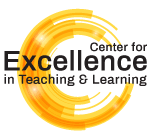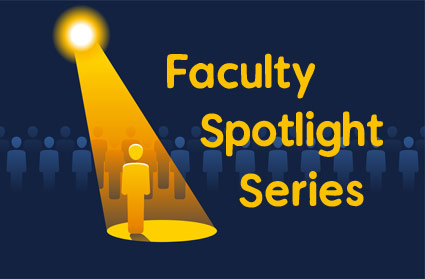| |
ARCHIVE: Faculty Spotlight Series
The Faculty Spotlight Series showcases the innovative work of our incredible faculty. Every semester we will feature a diverse array of faculty whose teaching and research defines, inspires, and informs excellence at the University of Idaho.
|
See Faculty Spotlight Series for current and future semesters
|
Spring 2024
|
|
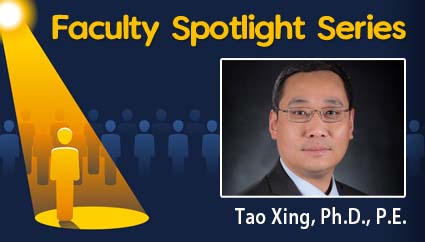
Self-Directed Learning Modules to Improve Student Performance In and Beyond STEM Disciplines
Tao Xing, Ph.D, P.E., Professor, Mechanical Engineering
GenZ students (ages 17-22) are more self-paced, self-directed, and independent, with freedom of what/how they learn. Previous studies have shown that a positive relationship exists between engineering students' self-directed learning abilities and online learning experience. Our research demonstrates the impact of self-directed learning modules on student success. We will share key design elements that make such modules effective, and strategies for fostering innovation at the intersection of teaching, learning, and scholarship. Please join Dr. Tao Xing who is presenting this Faculty Spotlight with his cohorts Dr. Steve Beyerlein, Dr. John Crepeau, and Dr. Sean Quallen.
RESOURCE MATERIALS
Video (55 min)
|
|
Spring 2023
|
|
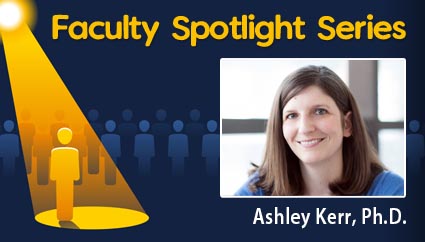
What Can the Zoo Do?: Animals and Social Change in Argentina
Ashley Kerr, Ph.D., School of Global Studies
In this talk, Ashley Kerr discusses her sabbatical research at the Buenos Aires Zoo in Argentina. What’s it like to be given access to two rooms packed with dusty and completely unorganized boxes of archival materials with peacocks and Patagonian maras wandering by? And what can the documents inside tell us about how Argentine elites used the zoo and its animals to shape society in the early 20th century?
RESOURCE MATERIALS
Video (53 min)
|
|
|
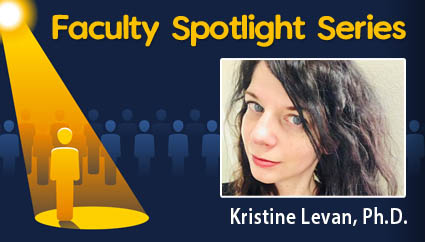
What Can Video Games Teach Us About Criminology and Society?
Kristine Levan, Ph.D., Culture, Society & Justice
The nuances of games and the video game subculture are critical to understanding their importance in society. As the relevancy of video games has increased, this has subsequently impacted perceptions on issues such as crime and justice. Issues such as gamer identity, as well as broader issues of video games were also explored.
RESOURCE MATERIALS
Video (47 min)
|
|
|
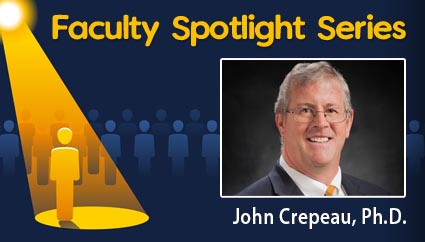
Tracking Student Competencies from the Freshman to the Senior Year
John Crepeau, Ph.D., P.E., Mechanical Engineering
A group of faculty members in the Department of Mechanical Engineering developed a unique assessment to determine how well student skill developed over the course of their educational experience at the University of Idaho. This session showcases assessment in a unique and positive light - one that maps and supports learning gains and skill development from the freshman year to the senior capstone, and then to the workforce. This session also highlights the value of collaboration in advancing--and documenting--student success.
RESOURCE MATERIALS
Video (46 min)
Rubric
|
|
Fall 2022
|
|
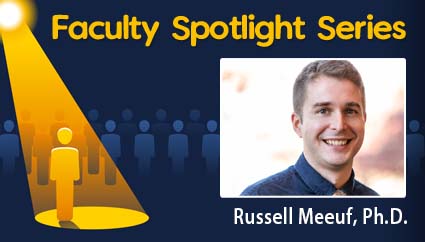
From the Classroom to the Bookshelf
Russell Meeuf, Ph.D., School of Journalism and Mass Media
Dr. Russell Meeuf discusses how his latest book, White Terror: The Horror Film from Obama to Trump, originated in a First Year Experience course covering the history of U.S. horror cinema. He explores how his teaching of horror and history helped not only inspire but also shape his academic research on the topic. Zoom link is provided for those who are not on the Moscow campus.
RESOURCE MATERIALS
Slides |
|
Spring 2022
|
|
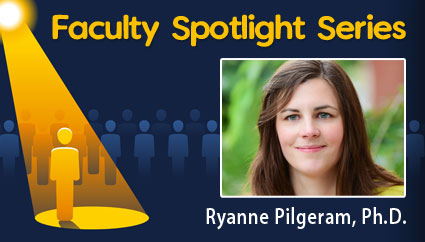
Wicked Problems Close to Home
Ryanne Pilgeram, Ph.D., Culture, Society & Justice
Dr. Ryanne Pilgeram discusses why she decided to write a book, Pushed Out: Contested Development and Rural Gentrification in the US West, on Dover, Idaho. She shares the ethical considerations she weighed researching a social issue that was local, urgent, and complex.
RESOURCE MATERIALS
Video (55 min)
|
|
|
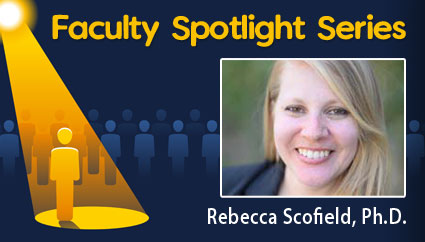
Fighting Historical Silences: Oral History and the Power of Queer Western Histories
Rebecca Scofield, Ph.D., History
The cowboy icon which emerged over the twentieth century has been used as a bludgeon of oppression. Imagined as white, male, and heterosexual "the cowboy" became a symbol of belonging (and not belonging) in the American consciousness. The Gay Rodeo Oral History Project seeks to reject that image through the lived experiences of people who identify as both LGBTQ+ and as cowfolx. This talk will explore the power of narrative to undermine exclusionary histories, providing fuller, more nuanced, understandings of our region.
RESOURCE MATERIALS
Video (49 min)
|
|
|
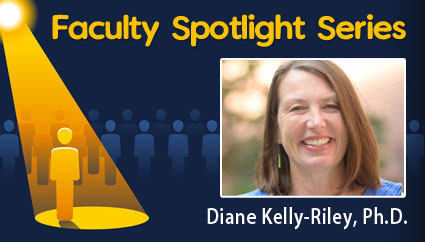
Company Town Legacy: Forging University-Community Partnerships
Diane Kelly-Riley, Ph.D., English,
with
Gary Strong
What happens to a company town when the company leaves? This is the central question informing our public humanities project, Company Town Legacy, which focuses on the rural northern Idaho town of Potlatch, once home to the world's largest white pine mill until the mill closed permanently in 1981. Company Town Legacy is a university and community partnership that reflects on the legacy of corporate influence and the challenges of economic revitalization, renewal, and restoration in the rural American west. The project has offered undergraduate and graduate students in English diverse pathways of study involving digital humanities and public engagement with a focus on rural settings.
RESOURCE MATERIALS
Video (49 min)
|
|
Fall 2021
|
|
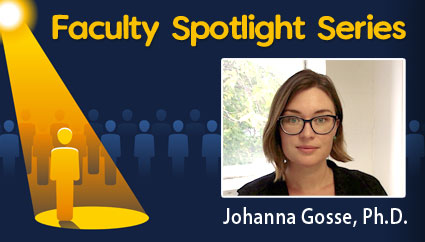
Nervous Systems: Art, Systems, and Politics since the 1960s
Johanna Gosse, Ph.D., Art and Design
Dr. Johanna Gosse (Art and Design) and her co-editor, Timothy Stott (Trinity College, Dublin) discussed of their new book, Nervous Systems: Art, Systems, and Politics since the 1960s (Duke University Press). Like the book, the spotlight here shined across academic disciplines and salient issues relevant to them.
RESOURCE MATERIALS
Video (58 min)
|
|
|
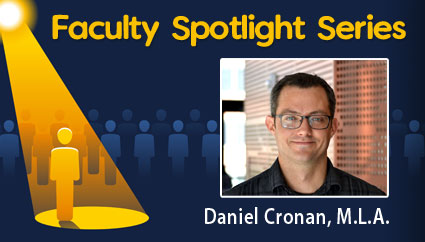
Uncertainty Ahead: Using Scenario Planning and Alternative Futures to Align Research, Teaching, and Service to address Real World Issues
Dan Cronan, M.L.A., Landscape Architecture
This presentation described a process used to address the socio-ecological systems, conflicts, and issues that have emerged over the last century. Alternative Futures and Scenario Planning provide researchers, stakeholders, and students with a methodology to understand key impacts and collectively decide on a suite of plausible scenarios for future decision making. Professor Dan Cronan (Landscape Architecture) presented previous and current projects to aid and inspire faculty, students, and researchers in aligning their teaching, research and service.
RESOURCE MATERIALS
Video (57 min)
|
|
|
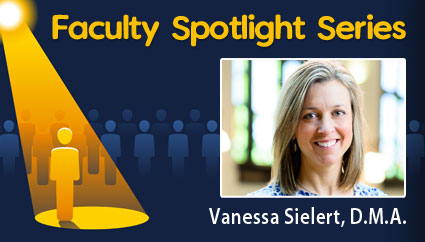
Mentorship and Support Within the Community
Vanessa Sielert, D.M.A., Music
Sometimes the best way to learn how to build a plane is once you are flying. Erin Chapman, Katherine Himes, Kathryn Schiffelbein and Vanessa Sielert explained how they built and developed the Athena Women's Mentorship Program, midair!
RESOURCE MATERIALS
Video (49 min)
|
|
|
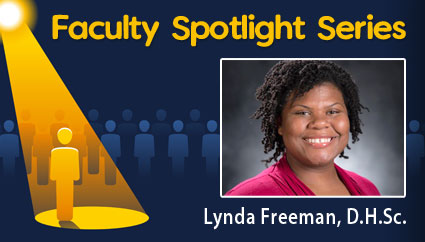
Breaking the Glass Ceiling: Teaching While Black & Female in Medical Education
Lynda Freeman, D.H.Sc., Assoc Prof, WWAMI
"When we speak we are afraid our words will not be heard or welcomed. But when we are silent, we are still afraid. So it is better to speak." --Audre Lorde. This session shared a narrative of confronting marginalization while bringing one's authentic and powerful identities into the classroom.
RESOURCE MATERIALS
Video (58 min)
|
|
Spring 2020
|
|
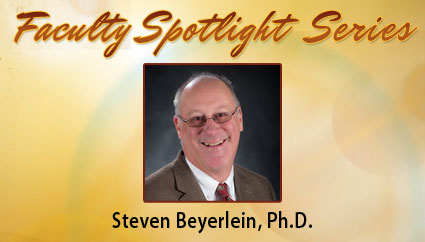
Balancing Learning & Growth for Better Educational Outcomes
Steven Beyerlein, Ph.D, Professor, Mechanical Engineering
Learning is the acquisition of knowledge or skills through experience, study, or by being taught. Growth is the result of achieving positive changes in quality of life through broadening values, expanding life vision, and strengthening key identities. Integrating learning and growth requires deliberate planning, facilitation, and assessment. Come explore an educational framework that promotes both learning and growth.
RESOURCE MATERIALS
|
|
|
Fall 2019
|
|
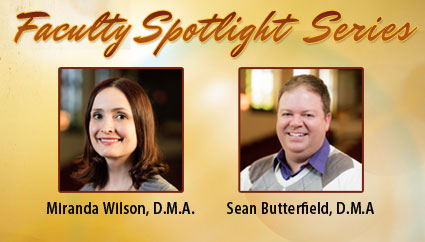
Making Knowledge Free: The Role of OER
Miranda Wilson, D.M.A, Assoc Prof, Music
Sean Butterfield, D.M.A, Asst Prof, Music
Traditional textbooks can be prohibitively expensive and negatively impact the student experience, so music faculty Sean Butterfield and Miranda Wilson have spent the last three years creating free online textbooks with help from the digital experts on campus. This presentation will demonstrate how you can integrate any teaching style with this new, easy-to-use platform. |
|
|
|
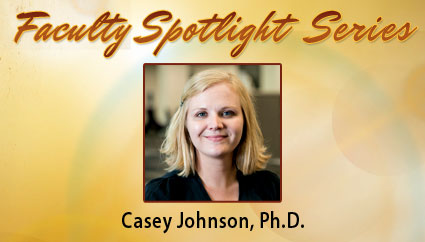
What Do We Owe Knowers?
Casey Johnson, Ph.D., Asst Prof, Philosophy
We are, as knowers, engaged in epistemic projects like inquiry, learning, and increased understanding. Few of these projects can be accomplished without help from other knowers. This interdependence renders us vulnerable to the epistemic behavior of others. In light of these vulnerabilities, what do we owe one another? What are our epistemic obligations to other knowers? |
|
|
|
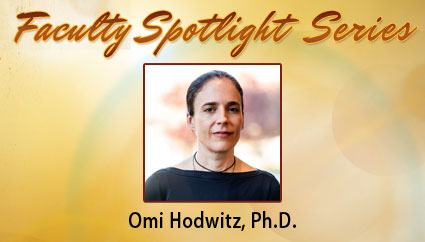
Educating Unique Populations: Pedagogy and Practices in Prison
Omi Hodwitz, Ph.D., Asst Prof, Sociology
The University of Idaho is committed to providing transformative learning experiences for students of all backgrounds. Incarcerated students occupy a small yet growing portion of our U of I student base but are often overlooked in discussions of pedagogy and practice. This session will focus on their unique educational experiences and needs. We will discuss current U of I prison education initiatives, approaches and challenges to prison-based education, and lessons learned from the field.
RESOURCE MATERIALS
|
|
Spring 2019
|
|
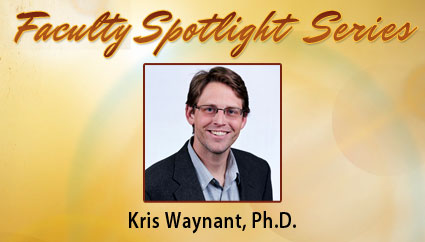
Designing and Assessing Inquiry-driven Exercises
Kris Waynant, Ph.D., Asst Prof, Chemistory
How do you communicate the value and relevance of your course to a broad array of students, especially in general education courses? Is it possible to tailor exercises to peak the interest and performance of majors and non-majors alike? In General Chemistry Lab, we are doing just that -- designing the course to show both the power of our field and the relation to theirs. Our assessment data show that students find a better overall value in the entire exercise when a part of it relates to them. |
|
|
|
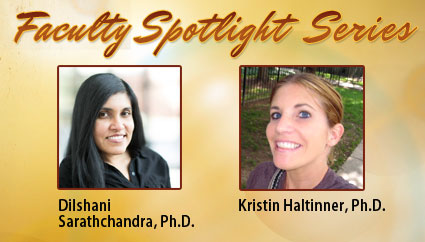
I Don't Deny and I'm Not a Skeptic, I Full Out Dissent: Navigating Politically Divisive Topics in Research and Teaching
Kristin Haltinner, Ph.D., Asst Prof, Sociology
Dilshani Sarathchandra, Ph.D., Asst Prof, Sociology
Questioned knowledge and skepticism rooted in and reflective of political division poses a unique challenge to faculty across academic disciplines. This session used the case study of climate change to discuss how to navigate politically divisive topics in research and teaching. Special attention was given to emotion management, data driven analysis, and enhancing critical thinking.
RESOURCE MATERIALS
|
|
|
|
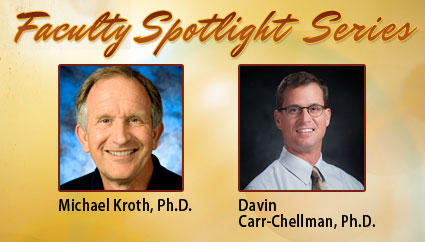
Preparing Profound Learners: Practices for Deepening Lifelong Learning
Michael Kroth, Ph.D., Assoc Prof, Education
Davin Carr-Chellman, Ph.D., Asst Prof, Education
As an institution, we are committed to transforming the learning and the lives of our students. In this session, Davin and Michael discussed their recent article, “Preparing Profound Learners,” which focuses on profound learning and possibilities for deepening lifelong learning. Current research informed a discussion of effective approaches and practices through the lens of personal and social transformation.
RESOURCE MATERIALS
|
|
|

